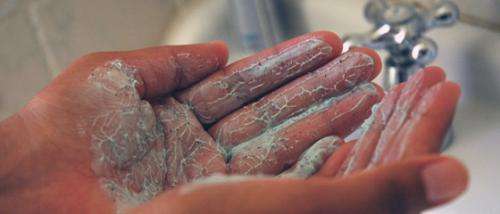New smartphone app will help consumers 'beat the microbead'

Fauna & Flora International is part of an NGO collaboration that has launched an international smartphone app to help consumers find plastic-free personal care products.
Dutch NGOs Plastic Soup Foundation and North Sea Foundation have launched a new smartphone app called Beat the Microbead that will allow consumers to find out whether or not a product contains plastic microbeads by simply scanning its barcode.
Beat the Microbead is available for free in five languages on Windows, iOS and Android operating systems, and can be downloaded from www.beatthemicrobead.org.
Products are divided into categories: green for plastic free products, red for products containing plastic, and amber for products that currently contain microbeads but for which the manufacturer has pledged to stop using plastic in the near future. This simple traffic light system allows consumers to see at a glance whether their favourite products contain microplastic.
Tackling the problem at the source
Beat the Microbead was originally developed as an iOS app for the Dutch market, and was so successful that the United Nations Environment Programme (UNEP) commissioned an international, multiplatform version.
The resulting product, which has been financially backed by UNEP and Fauna & Flora International, was unveiled today by Maria Westerbos of Plastic Soup Foundation and Jeroen Dagevos of North Sea Foundation at UNEP's second Global Conference on Land-Ocean Connections (GLOC-2) in Montego Bay, Jamaica.
"In theory, the app will be available for use in every country across the world but that is only possible if local NGOs supply lists with products containing plastic microbeads," said Maria Westerbos. "The US, UK, Germany, France, Hong Kong and Canada are already doing this, and recently NGOs from Brazil, Sweden and New Zealand have joined up as well. We are expecting a lot of positive reactions and for the app to spread like wildfire across the globe. It has become clear that Beat the Microbead is especially popular with consumers who want their products to degrade in a natural and eco-friendly manner."
Jeroen Dagevos added: "Plastic microbeads contribute significantly to the growing microplastic pollution problem that threatens our oceans, because water treatment plants are unable to filter them out. Beat the Microbead – which is the result of successful cooperation between more than 30 NGOs – tackles this problem head-on."
More information:
www.fauna-flora.org/news/ffi-l … he-good-scrub-guide/
www.fauna-flora.org/initiative … e-plastic-pollution/
Provided by Fauna & Flora International

















